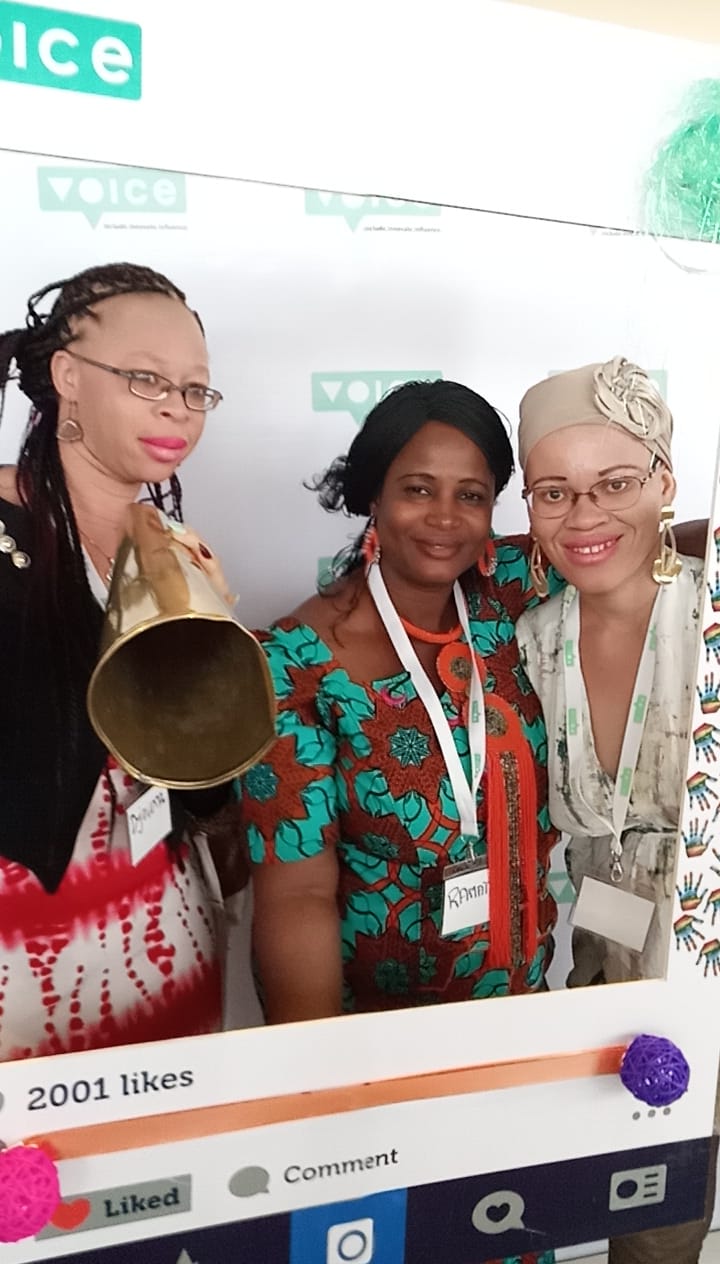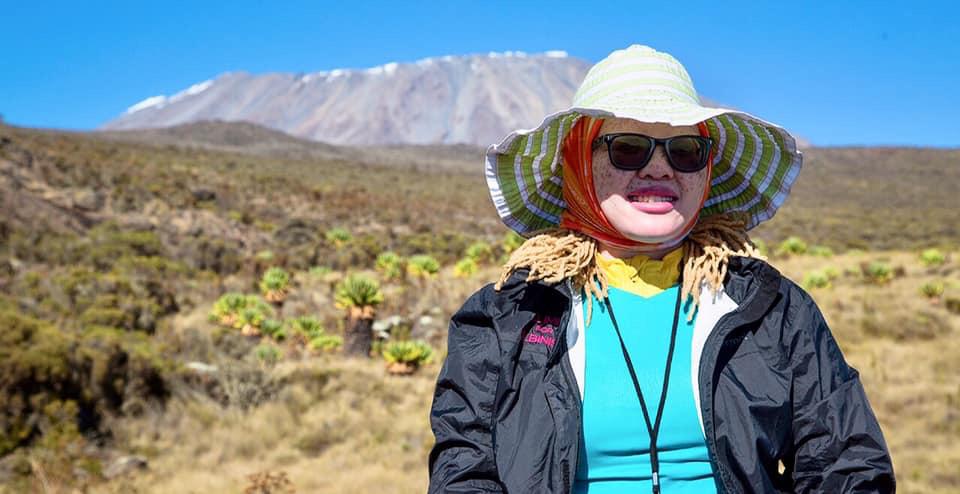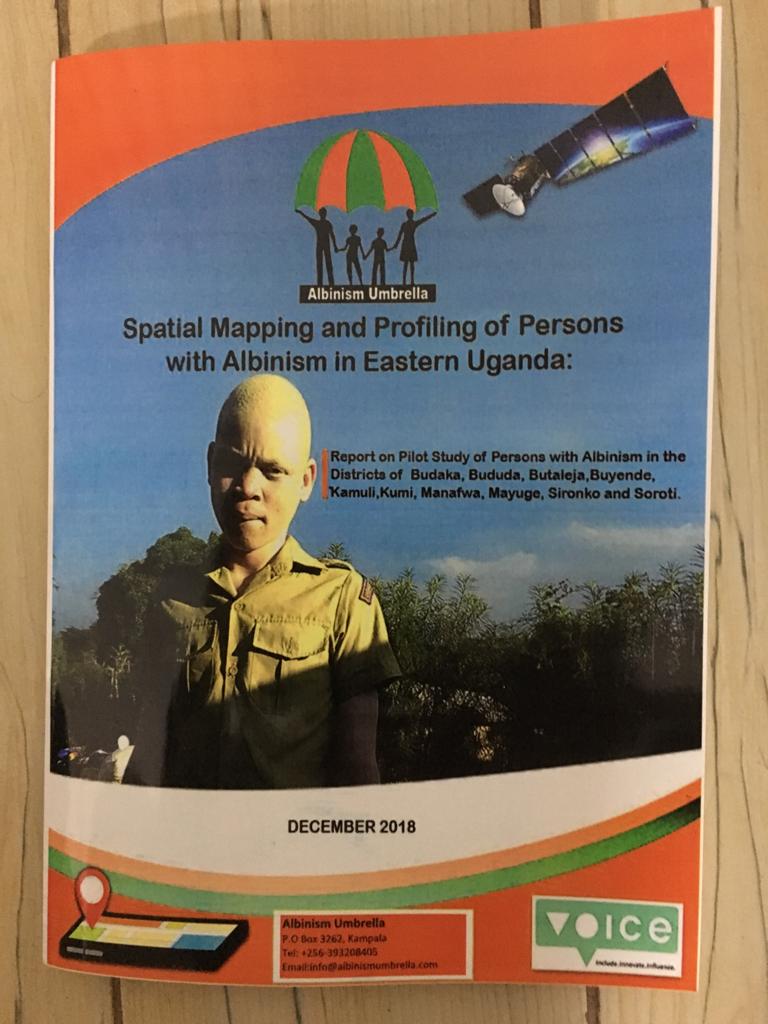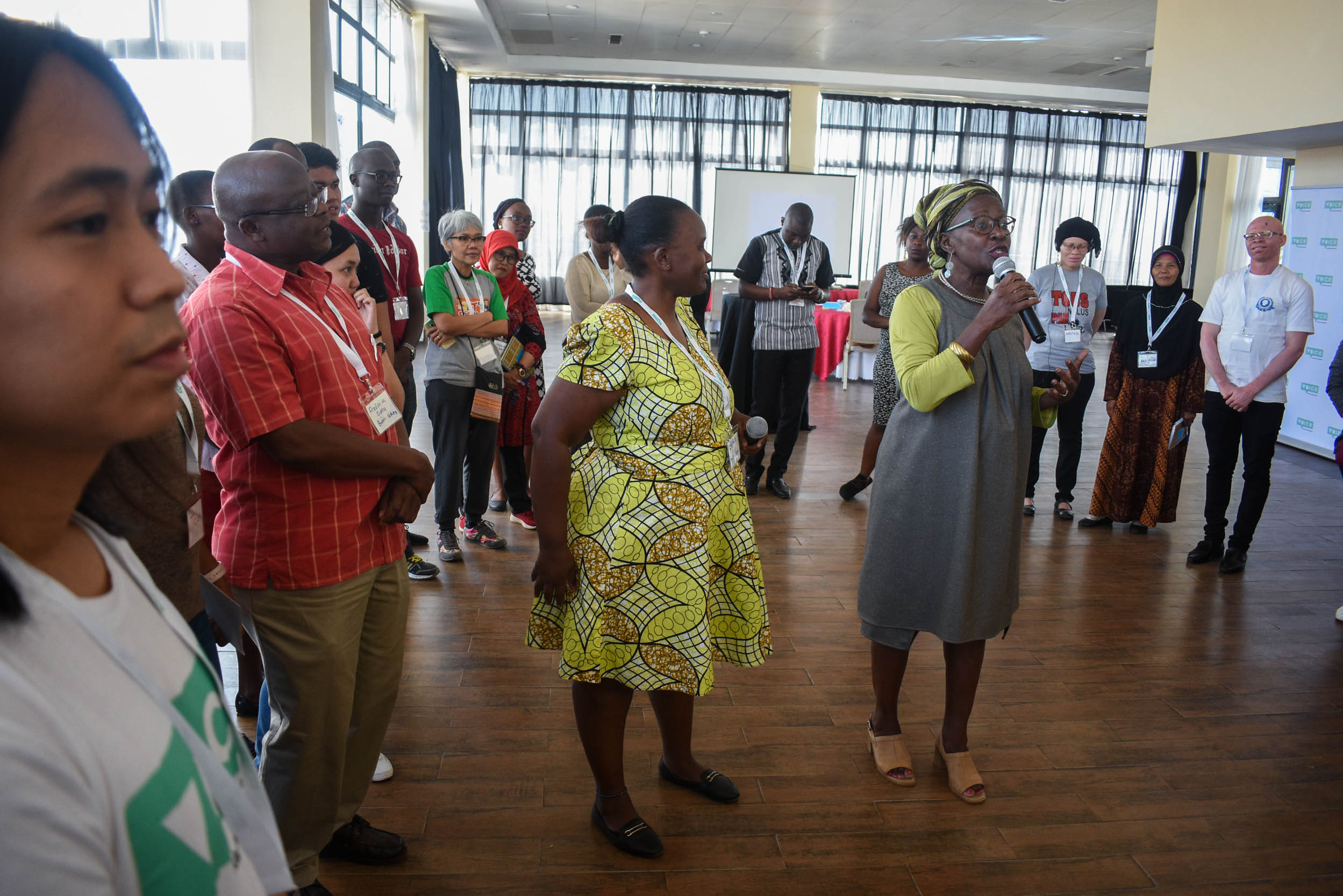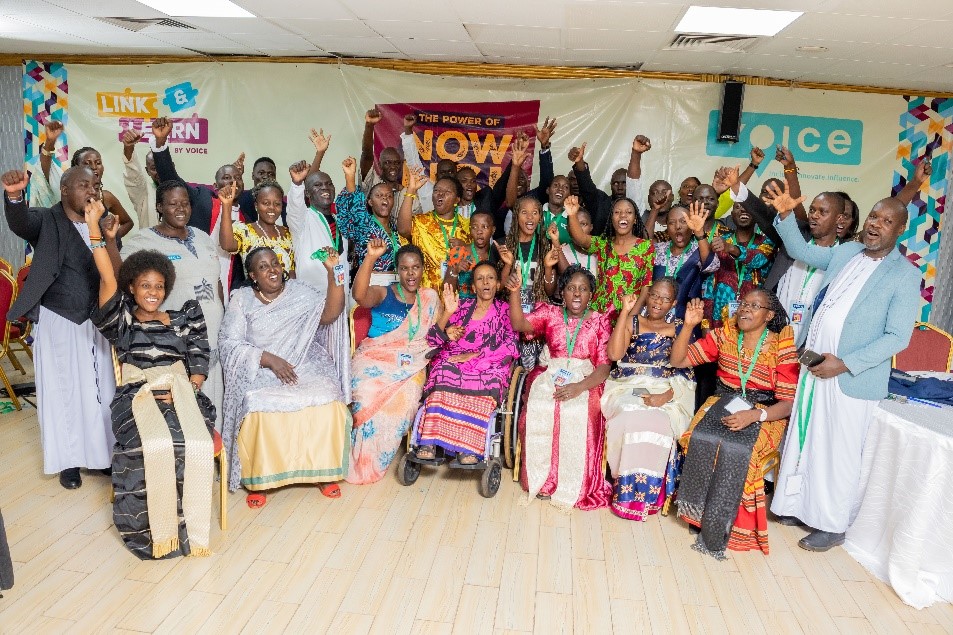My life as a person with albinism in Uganda – two women share their stories!
I am Olive Namutebi a resident of Kyanja village in Kampala. I am a professional accountant by training and one of the key voices for People with Albinism in Uganda. I have a son who does not have albinism. I have experienced first-hand stigma and discrimination because of my condition. And because of my desire to end this, I have founded the Albinism Umbrella, an organisation that has just been signed on as an Innovate and Learn grantee in Uganda.
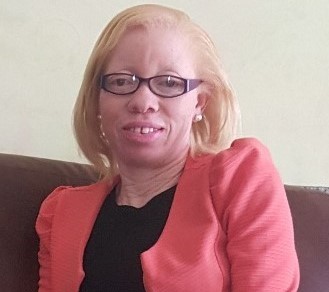
I believe that my education has raised my self-esteem and made me stronger beyond my peers! I also feel that people with albinism have many opportunities to explore in the current disability space. But first we have to find out how big our community is and that is precisely what the Voice grant will help us do: to identify and map the albino community.
Albinism has several challenges and among them is low vision, sun damage potentially resulting in skin cancer, widespread discrimination and ignorance. Most of these challenges hinge on ignorance and therefore creation of awareness is a great intervention. Sun damage can be mitigated by wearing sunscreen, long sleeved dressing and avoiding sun exposure to being with.
My message to society would be to understand albinism. Know the truth and pass it on! Albinism is only a genetic condition inherited from both parents and it is not contagious. Albinism is caused by a recessive gene and evidenced at birth where a child lacks pigmentation in the eyes, skin and hair.
I want people to know that old negative beliefs dehumanise people with albinism. I am concerned that women are most affected by this. It is not true that women with albinism are a curse; or are ghosts.
It is not true that they don’t die but just disappear.
And it is not true that they have magical powers to heal HIV/ AIDS or make other people wealthy.
These beliefs and practices should be dealt away with as they violate the right to life for persons with albinism.
“I was literally saved by my scar, ”
shares Samalie Lukabwe who is a member of the Albinism Umbrella, and lives in Gayaza, Wakiso District, just next to Uganda’s capital Kampala.
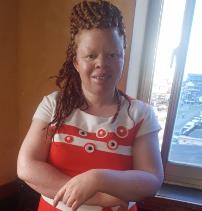
Growing up as a person with albinism, I faced a number of challenges, some of which started from early childhood right at home. I was born as the eighth child and the only one with albinism in my family. My parents were not happy with me and they gave me away to my grandmother. She is the one who brought me up.
It was a problem enrolling me in a school because I was the only child with albinism in the area. Other parents were not comfortable having their children in that school because I was perceived to be a ghost and not a human being. They discouraged their kids from interacting with me so I did not have any friends. Some parents even took their children away from that school.
The headmistress of the school promised the parents that I would be taught alone, away from their children. My teachers followed these instructions and always taught me separately from the other pupils, and when it was time to go home, I went home either before or after all the other pupils. I was also not allowed to participate in co-curriculum activities at school. Once I tried out for the school choir but the teacher approached me privately and told me that I was not allowed to be in the choir.
Growing up in so much isolation, and being young, I believed each and every single negative remark people made about me. I believed that I was a ghost and that I would never die, just disappear.
I used to fear so much especially at night when it rained heavily with thunderstorms. I would lie in bed wondering how I’ll disappear and which direction I would take. I would pray so hard that I do not disappear during such bad weather and hoped that I would at least disappear during the day when I could see well.
One day as I was going home from school, I was kidnapped by sorcerers who wanted to sacrifice me to a god. After they took me back to their lair, upon further scrutiny, they found a scar on my arm and a disagreement erupted between them. One of them believed that I was not a worthy sacrifice because of the scar. I was literally saved by my scar! So they had to let me go. When I got home that day, my grandmother caned me because I had reached home late. Grandmother was angry because she had gone through the trouble of looking for me everywhere. I was banned from ever going back to school. I did not tell grandmother what had happened because I was frightened.
After a few weeks, one of my teachers who was concerned with my absence in school came to see my grandmother. My grandmother told the teacher about my late coming. Only after my teacher promised to escort me to and from school every day did my grandmother agree for me to go back to school. Later on, I told the teacher the truth about what happened but since the sorcerers were well known in the area my teacher was scared to pursue the incident.
I only started building my self-esteem upon meeting Bishop Steven Ssenfuma of United Christian Centre Kasubi. In his teachings, he emphasised the value of a human being regardless of what they looked like. He insisted that God doesn’t make mistakes and this made me feel better about myself. As organisations started coming up linking people with albinism to each other I increasingly grew more confident and happy because I was able to make friends and see others just like me.
I urge parents who have children with albinism to build their children’s confidence right from childhood because of the prejudice that they will face out there in the world. Let us squash all the myths and societal constructions about albinism!
A BIG thank you to Olive and Samalie for sharing their stories and for their resilience, passion and courage to speak up for those living with albinism.

